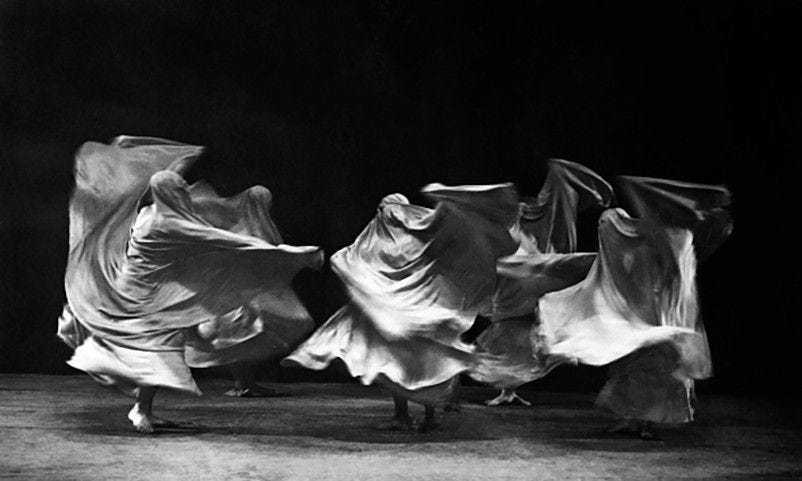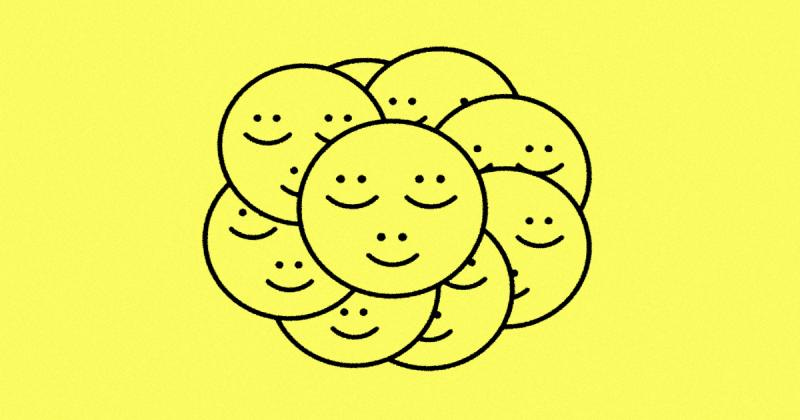🗞️ Reads—On the Myth of Easy Solutions
Here’s some thought-provoking reading and listening for you this week, just as we head into a nice summer weekend. This second edition of "Reads" explores a pattern challenging a persistent belief that complex human problems need simple solutions—and what happens when reality pushes back.
I've gathered three pieces that each, in their own way, challenge the seductive promise of easy answers. From Amsterdam's high-stakes experiment with "fair" AI to the neuroscience of creative mastery, to hopes for a more authentic creative future, these stories to me reveal a common thread: the irreplaceable value of doing hard work.
Each piece offers insight into why shortcuts often fail, and why the most meaningful progress—whether in governance, creativity, or building better systems—requires patience, practice, and genuine human engagement rather than technological quick fixes.
The Neuroscience of Flow: Why "Just Feel It" doesn't work
We've all heard the advice from creative teachers: ‘Just feel it.’ ‘Let go.’ ‘Be present.’ But as neuroscientist and former professional dancer Julia Christensen reveals in Aeon, this guidance misses the fundamental truth about how creative flow actually works.
Flow—that magical state where time disappears and we become one with our creative work—isn't about letting go of structure. It's about having so thoroughly mastered the technical foundations that conscious effort can finally step aside, allowing deeper neural systems to take over.
The paradox is actually beautiful: to transcend technique, to be able to ‘let go’, you must first master it completely. To "let go," you must first build something solid to release. There are no shortcuts to the neuroplastic changes that enable true creative expression—just the patient work of practice, repetition, and building what Christensen calls "pathway prompts" that guide your brain into flow.
→ "You need to build mastery in order to find your flow" — via Aeon
When "Responsible AI" fails: A failed experiment in Amsterdam
In an investigation by MIT Technology Review, Lighthouse Reports, and Trouw, we get access to Amsterdam's attempt to build the "perfect" algorithmic welfare system. The city followed every rule in the responsible AI playbook—bias testing, stakeholder consultation, technical safeguards, transparency measures. They even discovered and corrected for discrimination in their initial model.
Yet the system still failed spectacularly.
Despite years of careful development and €500,000+ in costs, Smart Check proved no better than human caseworkers at detecting fraud, while introducing new forms of bias against Dutch nationals, women, and parents. The city ultimately scrapped the entire project.
→ "Inside Amsterdam's high-stakes experiment to create fair welfare AI" — via MIT Technology Review
Seven Things to wish for, in a New Creative Era
In the latest episode of their "New Creative Era" podcast, Yancey Strickler (co-founder of Kickstarter and Meta Label) and Joshua Citarella present their wishlist for a more human-centered creative future.
They envision artists creating and selling mid-priced work again—escaping the false binary of either expensive art for the wealthy (which tends to lead toward safe, boring work) or cheap "non-art" merchandise. They want creative people connecting through fluid networks of small collectives rather than isolated individual struggle. Most intriguingly, they call for a more "childlike, fearless and curious" creative culture and an end to cross-subsidization—where artists could make everything they do viable instead of one practice funding their "real" work.
Their vision extends to "performances of everything"—more live, real-time creative experiences—and "creative capitalism" where artists get equity in businesses rather than accepting exploitative deals. Perhaps most ambitious is their proposed "artist reserve" that would vet business ideas based on global unsubscribe rates, essentially managing the flow of corporate content.
What's striking is how each proposal requires dismantling existing systems rather than optimizing them. Like the Amsterdam welfare experiment and the neuroscience of flow, there are no quick fixes here—just the patient work of building something fundamentally different. Their vision suggests that meaningful creative change, like fair governance and genuine mastery, can't be shortcutted through better platforms or smarter algorithms but requires restructuring the basic incentives and power dynamics of how creative work operates.
→ "Seven things we want from a new creative era" — via Metalabel
What strikes me about all three pieces is their shared skepticism of the easy solution and call for a renews appreciation of some things being hard and complex, and that some good things take time to accomplish. Whether it's algorithmic fairness, creative inspiration, or better creative systems, the promise of simple fixes keeps failing us because it misunderstands the nature of the problems we're trying to solve.
These aren't technical problems requiring better tools—they're human problems requiring wisdom, patience, and the willingness to do difficult work over time. The most meaningful progress happens not through shortcuts but through sustained engagement with complexity, whether that's building truly equitable systems, developing genuine creative mastery, or reimagining how we want to live and create together.
Perhaps the real myth isn't just that solutions should be easy, but that solutions exist at all without ongoing human effort, care, and commitment to doing better.
That's it for this week. Wishing you a thoughtful summer weekend—Cheers! ✌️





Skepticism may just be my “word of the decade”. 😅